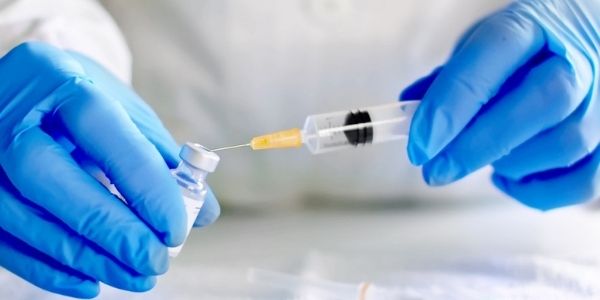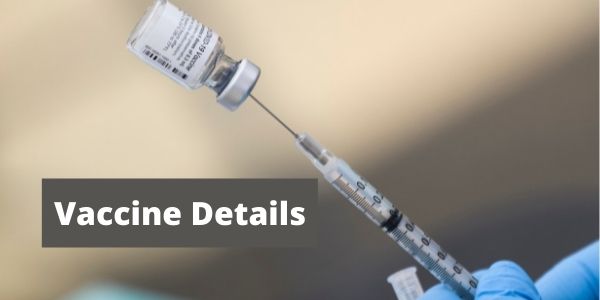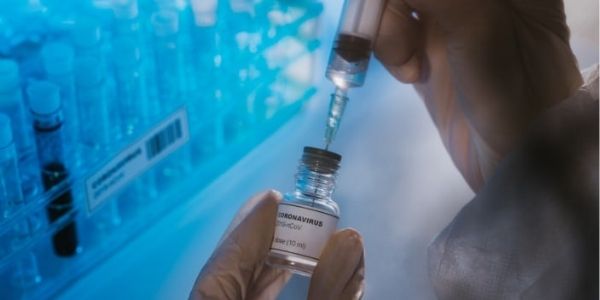Vaccine? It is one of the famous words we have heard for the past two years. We all are aware of covid-19, and due to this, we have gained more knowledge of the vaccine meaning. Further, this article aims to provide you all information related to how vaccines work, meaning, types of vaccines, definition, and other details. After reading the article, you will know more about the vaccine’s meaning and all other details. It will also help you with the exam preparations.
Introduction
A vaccine definition is a biological substance created to protect humans from infections caused by bacteria and viruses. A vaccine contains an agent that looks like a disease-causing microorganism. Further, it is made from weakened or killed forms of the microbe, its toxins, or one of its surface proteins.
One can take vaccine through
- Injection (most common)—a needle is inserted into a muscle or just under the skin
- Oral—taken by mouth
- Intranasal—inhaled through the nose
Further, below we have more details on the same. Know how do vaccines meaning, definition work and why one needs to know for the exam.
Immune System
Further, vaccines also help to increase human body immunity. The immune cells present in our body can determine when a foreign body enters the body. Besides, in the presence of foreign cells that may cause danger, special immune cells called lymphocytes to become active. The immune system is efficient and specific. It is made in such a way as to promote future or long-term immunity to individual organisms. Later, vaccines are useful and important to protect the body by creating defenses against specific diseases. So, before you even get them, and help you stay healthy.
Importance of Vaccination
It is a normal question why vaccines are important? Let us know why below.
- Vaccines help us to keep you healthy. When you don’t take vaccine you easily invite illnesses such as shingles, pneumococcal disease, flu, and HPV, and hepatitis B, both leading causes of cancer.
- Further, viruses and bacteria may cause illness and death.
- It important for overall health. Vaccines are the most convenient and safest preventive care measures available like eating good food, exercising, and vaccines are also equally important for our body.
- There are many questions regarding wheather vaccines are safe or not. Vaccines are safe and side effects associated with vaccines are uncommon, and it is less. However, side effects are less than the diseases they prevent.
- Further, they won’t cause the disease they are created to prevent. As we have mentioned vaccines, contain either killed or weakened viruses. It makes it impossible to get the disease from the vaccine.
There are multiple reasons to get the vaccination. They will also help you in various ways. We observed the importance of getting vaccination due to covid-19. If not completely, but they helped many people from death.
Vaccination
Further, when someone is vaccinated, you are protected from targeted disease. For example, we all got vaccination with covieshield or covaxin and other vaccines to protect against covid-19. They are made to fight against particular diseases. Further, not everyone can take the vaccination like people with a health condition that may weaken their immune systems or people with allergies to some vaccine components. Therefore, vaccination is not only for yourself, but it also protects those present in your community. Therefore, it becomes important to know the importance of getting a vaccination and spread the same among those who still don’t believe in it.
For more details on the covid-19 and other details, you can click here.
Types of Vaccines
There are many approaches to developing vaccines. Further, the approaches are based on the details of the infections caused by bacteria or viruses. Further, it also depends on the factors like climate conditions like temperature and risk of exposure, and it is different across the world.
- Live, attenuated vaccines – These types fight against viruses and bacteria. Then, these vaccines consist of a version of the living virus or bacteria. For example, using chick, the virus is grown in different embryos in a series. Later, with each passge, the virus becomes better at replicating in chick cells but loses its ability to replicate in human cells. Examples of vaccines are measles, mumps, and rubella, and chickenpox. Further, not everyone can get this vaccine like children with weakened immune systems.
- Inactivated vaccines – Further, this type of vaccine also fights against viruses and bacteria. This type is made from the inactivating, or killing, the germ during the process of making the vaccine. Like they are by inactivating a pathogen, typically using heat or chemicals such as formalin. Besides, multiple doses of vaccine are essential to building up or maintaining immunity.
- Toxoid vaccines – This type prevents diseases that are caused by bacteria that produce toxins. Further, in the process of making this type , toxins are weakened so they cannot cause illness.
- Conjugate vaccines – This vaccine fight for a different type of bacteria. Further, this type of vaccines are effective as the type of bacteria connects the polysaccharides.
How do Vaccines Work?
One needs to understand how do Vaccines work. First, humans develop immunity by imitating an infection. Further, infections never cause illness, but they cause the immune system to produce T-lymphocytes and antibodies. Once you get the jab, the imitation infection can cause minor symptoms, such as fever. However, such minor symptoms are normal and expected as the body builds immunity.
Later, once the imitation infection goes away, the body is left with a supply of “memory” T-lymphocytes, as well as B-lymphocytes. These will remember how to fight a particular disease in the future. Further, it takes a few weeks for the body to produce T-lymphocytes and B-lymphocytes after vaccination. Because of this, there are chances that a person may get a disease as the vaccine has not developed enough to provide protection.
How they help?
As we all know now, vaccines contain inactive parts of a particular antigen. This antigen triggers an immune response within the body. Further, newer vaccines contain the blueprint for producing antigens, and the weakened version will not cause the disease in the individual receiving it. But, then, some vaccines require multiple doses, which can be given weeks or months apart. This is because sometimes, it requires the production of long-lived antibodies and the development of memory cells.
Conclusion
In summary, the above article gives you complete information on the Vaccine meaning, definition, types, and uses. Further, one needs to get the vaccination to protect ourselves from deadly bacteria and viruses; by vaccination immunity power of the human body increases. Besides, we have also added how it works. One needs to have proper knowledge of the same. We all are aware of the covid-19 situation across the country. During that particular many of us understood the importance of getting a vaccination. Also, we have said not everyone could take it; if someone is having a health condition, there is a different procedure.
Some must be wondering why it is even important for the exam? One needs to know about it as part of the IAS exam. As we all know about the IAS exam and syllabus, it is huge. Further, the pandemic has played a major role across the world. So, without a doubt, it is one of the important topics for one to cover for the exam. We all know because of covid-19 how things around us changed, and we have also learned many things. Not only for the IAS exam, but probably various exams will ask about how vaccines work, their definition, meaning, etc., and how they affect people across the world. Therefore, one cannot miss this topic. One can give a mock test to know better on the same.
Also, get all the important concepts for the IAS exam preparations here. We have covered all important topics for the exam. Read More.
FAQs
A preparation is used to stimulate the body’s immune response against diseases.
Edward Jenner
People need to understand that it is a drug that comes with benefits. Further, no vaccine is 100 percent effective in preventing disease or 100 percent safe in all individuals.
Editor’s Note | Vaccine
The above article will get all details to help you know more about the vaccine’s meaning, definition, and types. It becomes important for us to know about vaccination with the current situation. Further, this article helps you know how vaccines work in our bodies. Even though the human body has antibodies to protect from the virus, one needs to get the vaccination to fight against the ready virus. It is a common question why one needs to know about it. It is essential to protect ourselves and the people surrounded by us.
Further, as a part of the IAS exam also it is vital. As we have seen various situations with covid-19, there is a high level of chances of questions appearing related to the vaccinations and other related topics. To know about the paper pattern, one can refer to the previous year’s papers or give mock tests. It will help you to know how one studies for the exam. We have also added important links that will help you with the exam. It is good to make notes while reading the article and study the same during the exam.










